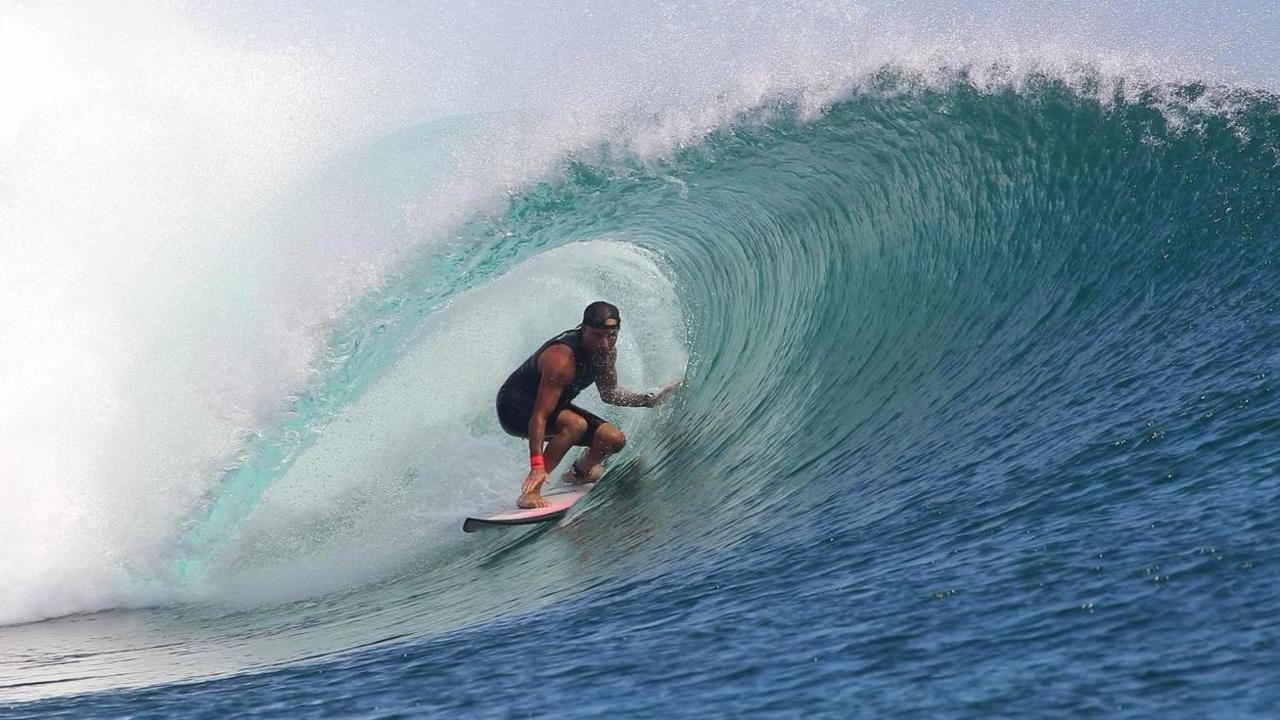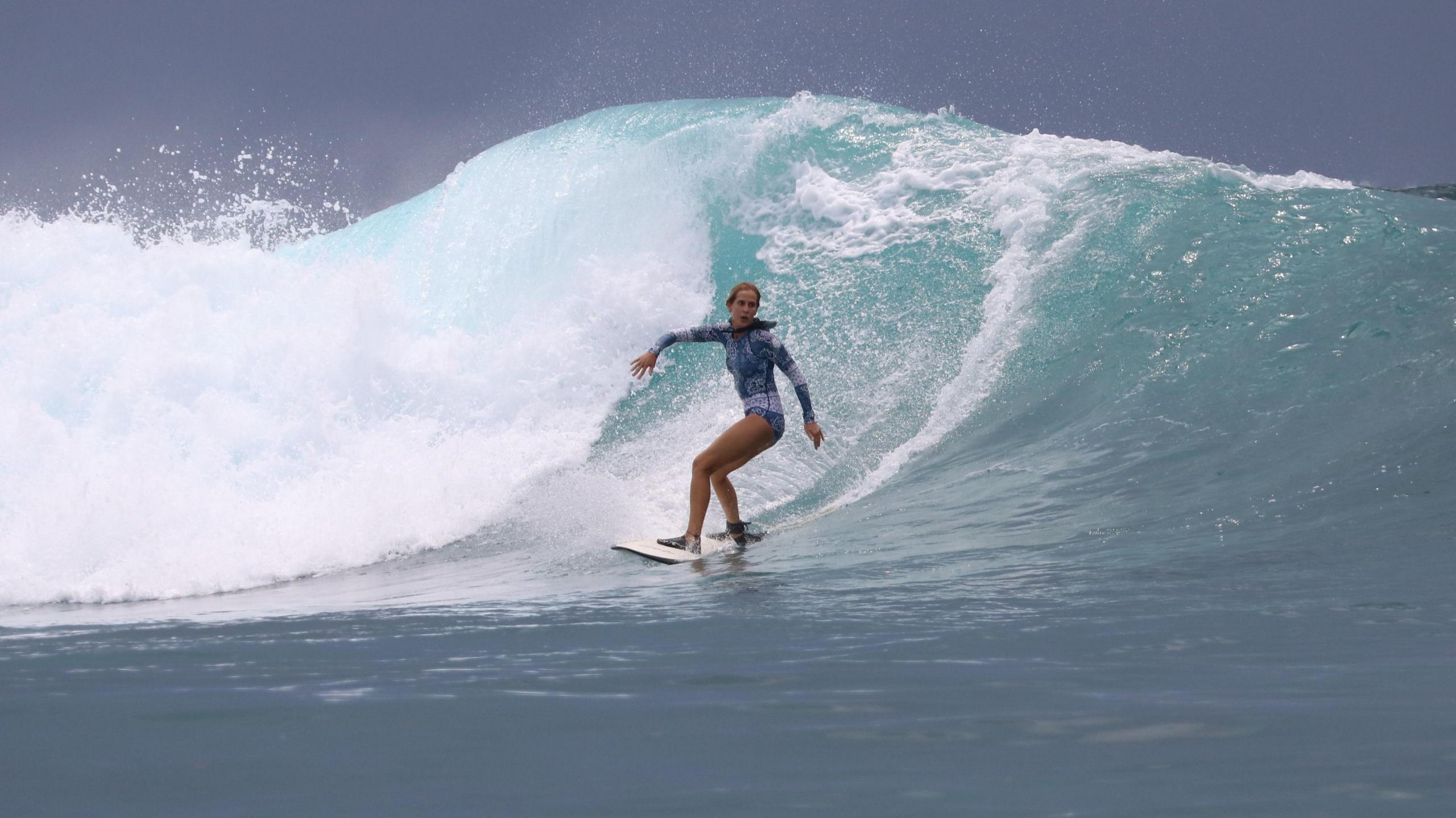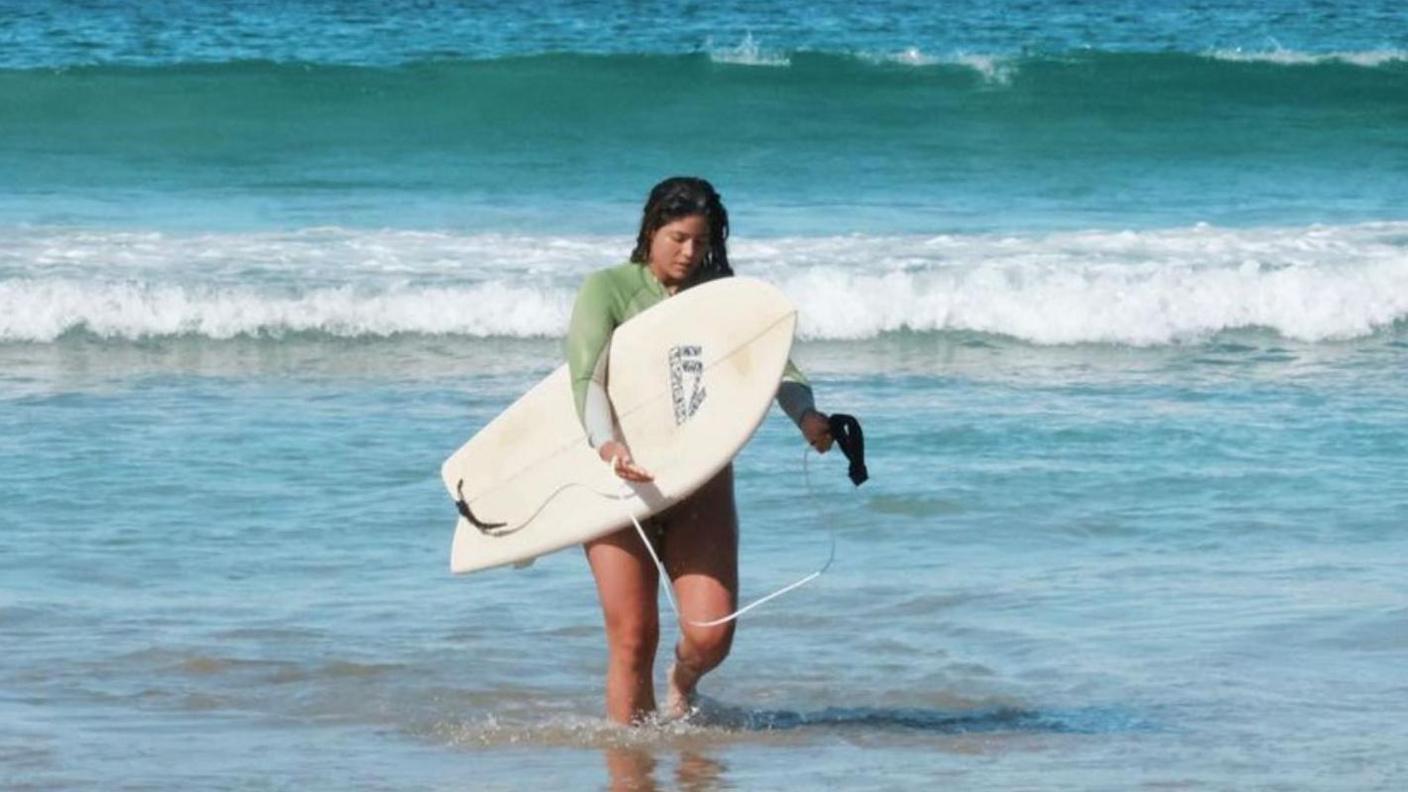Why protecting Australia's surf beaches is good for the economy

Surfing is "like this cool economy", Manly Surf School's Matt Grainger says
- Published
Surfing was first introduced to Australia more than a century ago.
Since then the sport has blossomed into a cultural phenomenon and a commercial juggernaut.
Research from the Australian National University (ANU) estimates surfing injects at least A$3bn ($2bn; £1.5bn) into the national economy each year.
The study, however, comes with a stark warning that surf breaks - areas where the waves start to collapse or plunge - should not be taken for granted and need more legal protection.
“Unfortunately because of climate change, coastal erosion and competition for coastal spaces, the elements that make these high quality waves possible are on many occasions in danger,” explained Dr Ana Manero, an expert in water economics and governance at the ANU’s Crawford School of Public Policy.
“I don’t think the lack of protection right now is deliberate. It is just surf breaks currently they just fall in a blind spot for policy makers.”
Global warming and poor water quality are surfers’ main concerns, according to the report published in the journal, Marine Policy.
About a dozen surf breaks in the state of New South Wales and Bells Beach in Victoria have formal protection but researchers want much more.
“What I am more worried about is those waves that may not feature on a world-class map but they do provide value for people like you and I,” Dr Manero told the BBC from her office in Perth, Western Australia.
“Those waves that do not attract global attention... are the waves we need to focus our attention on.”
A previous ANU study found waves off the town of Mundaka in northern Spain vanished because of changes to a sand bar after dredging in a nearby river.
Research also found that expansion to a marina in Perth caused the disappearance of three surf breaks in 2022 and an artificial reef has now been proposed.

Dr Ana Manero is an expert in water economics and governance
Some answers for Australia might be found far away in South America or much closer to home.
“In Peru they established what they call La Ley de Rompientes, which means the law of surf breaks, that protects these assets,” added Dr Manero.
In New Zealand, safeguards are provided by an existing act of parliament and a separate, complementary policy that recognises the importance of national, regional and local surf spots. The level of protection they receive is commensurate to their level of significance to surfers.
Using data from the Australian Sports Commission, a government agency, the ANU study estimates there are more than 720,000 active adult surfers in the country. On average they spend about A$3,700 each year.
It is, though, likely to be a conservative figure because it does not consider children, overseas tourists or money generated through professional surfing.
“It is like this cool economy; cafes, restaurants, surf shops, accommodation. Yeah, it’s good. Love it,” said Matt Grainger, who runs the Manly Surf School in Sydney.
“I’ve had the business for 30 years. Just looking forward, I pretty much see it [with] just a slow growth. So, we try not to grow too fast here like with the surf school because you don’t want to crowd out the actual ocean with too many surfers.”
“Once you’ve got your board, it’s free and it’s always different; the tide, the wind, the swell,” he told the BBC.
On a bright and breezy winter’s morning on Australia’s Pacific coast, Mika Flower, an instructor, is preparing to take charge of another lesson.
The work to conquer, or attempt to master, a wave begins with repetitive drills on the sand.
“I have surfed my whole life. It’s super fun,” Ms Flower explains.

Mika Flower says she has been a surfer her whole life
“I thought I would love to be able to teach people and share the joy of surfing, and it is nice to not be working in an office. It is nice to be working at the beach getting sunshine and being in the water every day. Australia is, sort of, seen as the country to surf. Everyone wants to jump on the bandwagon.”
For those chasing the perfect wave, surfing is about embracing the power of nature. For them, it’s a gift that should be protected.